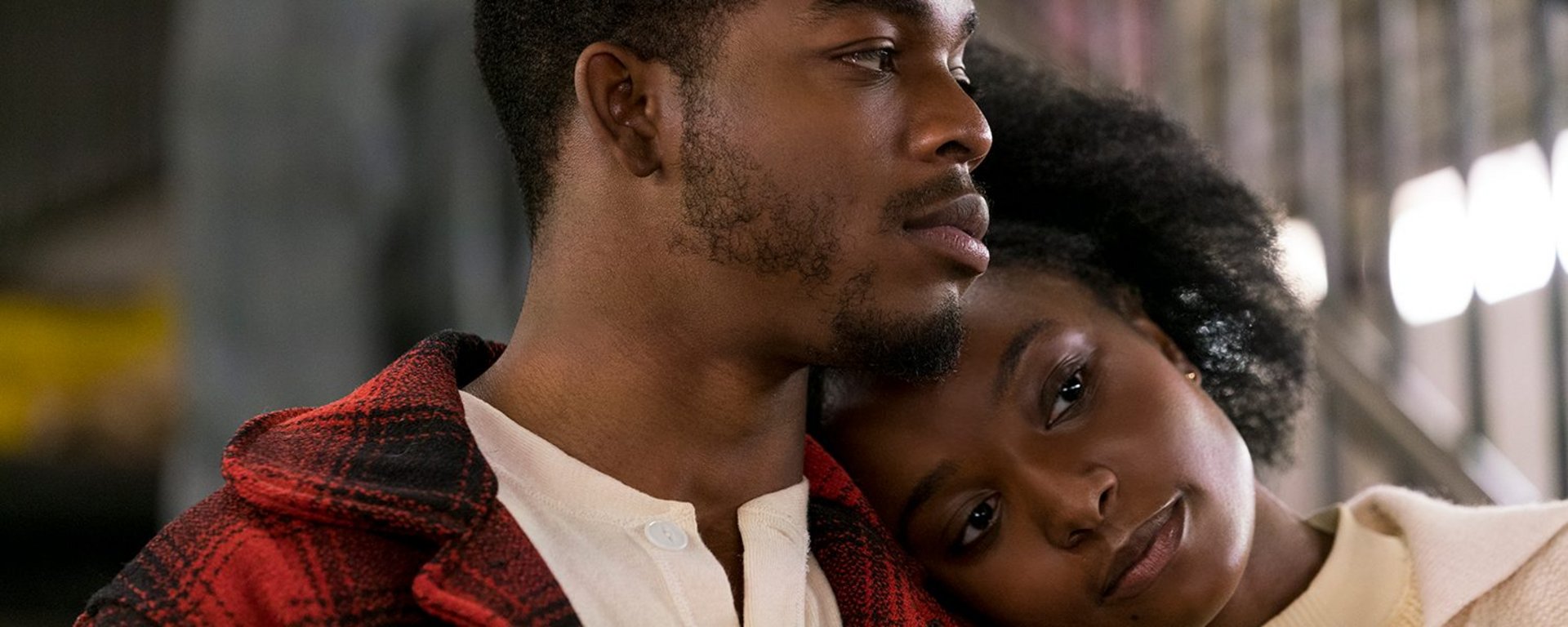
If Beale Street Could Talk
Synopsis: Drama in which a pregnant woman tries to clear her fiancé’s name when he is wrongly accused of a crime.
About the film
The film is adapted from James Baldwin’s 1974 novel of the same name, and directed by Barry Jenkins, who is best known for directing the Oscar-winning Moonlight (2016). The themes of racism and injustice were very topical at the time of the book’s publication, and remain so today in the era of ‘Black Lives Matter’. At the 91st Academy Awards, the film was nominated for Best Adapted Screenplay, Best Original Score, and Best Supporting Actress for Regina King, with King winning for her performance as Sharon.
Information about the film's content: BBFC age rating and ratings info
We provide information to accompany all our classification decisions. The film was first seen by the BBFC in November 2018. The people who made the film asked for a 12A certificate, but when the BBFC watched it there was a single use of very strong language (‘c**t’) which meant they had to recommend 15.
15 means that no one younger than 15 may see a 15 film in a cinema. No one younger than 15 may rent or buy a 15 rated video work. The BBFC Classification Guidelines (which detail what is permitted at each category) allow for very strong language at 15, “depending on the manner in which it is used, who is using the language, its frequency within the work as a whole and any special contextual justification”. The film also contains around ten uses of strong language (‘f**k’) which exceeds the frequency of strong language that would be permitted at 12A. There are also other strong scenes including a sex scene between Tish and Fonny. To explain the rating the BBFC said it contained “infrequent very strong language, strong sex”.
Language - There is infrequent very strong language ('c**t') as well as strong language ('f**k'). There is also self-directed use of the terms 'nigger' and 'negro'.
Sex - Sex scenes include breast and buttock nudity and implied climax following thrusting movement.
Other - There are undetailed references to rape, and a scene in which a woman is sexually harassed. There is also a scene in which a man hits a woman across the head, knocking her to the ground.
Discussion points
- Did you enjoy the film? How did the film make you feel? Were there any bits of the story that you didn't like? Who was your favourite character?
- Did you learn anything from the film? If so, what?
- The film has a non-linear structure. What did you think the effect of this was?
- How does the film depict racism in 1970s America? In what ways do you think things might be different if the film were set in the present day?
- What do you think this film has to say about the American justice system?
- How does the film explore the theme of relationships? What does it say about romantic relationships? Partnerships? Friendships? Family?
- Victoria, Fonny’s accuser, says that the police told her to identify Fonny as her attacker. Why do you think she did this?
- Director Barry Jenkins chooses to shoot certain scenes with actors delivering their lines directly into the camera. Why do you think he made this choice? What effect do you think it has?
- Tish chose to stand by Fonny, even when all seems hopeless. What do you think this says about her character?
- Whose side were you on in the film?
- Have you read the novel the film is based on? How do you think that would affect how you react to the film?
- Who do you think the film is suitable for? Is a 15 the right age rating? What might teenagers make of the film?
Further Reading and Viewing
Books: Go Tell It on the Mountain (James Baldwin, 1953); The Women of Brewster Place (Gloria Naylor, 1982); The Beautiful Struggle (Ta-Nehisi Coates, 2016); The Hate U Give (Angie Thomas, 2017)
Films: To Kill A Mockingbird (1962) PG; The Hate U Give (2018) 12